Washington state’s agricultural prowess isn’t just a happy accident. It’s the result of strategic irrigation practices, sustainable farming techniques, and a climate ideally suited for apple production. With over 60% of the nation’s apple supply hailing from the region, Washington growers leverage advanced technology and innovative methods to ensure their orchards thrive, even in arid conditions. But as the industry evolves, new challenges are emerging that could impact the state’s agricultural future. Exploring the intricate balance between production, resource management, and environmental stewardship offers insights into the complexities of modern farming.
Key Points
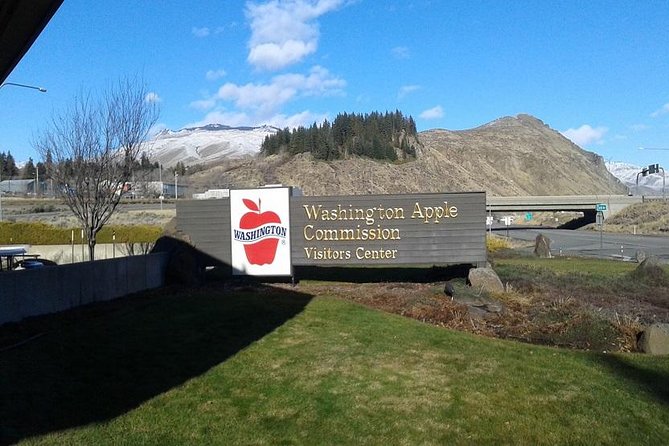
- Washington is the leading apple-producing state, responsible for over 60% of the nation’s apple crop.
- Ideal growing conditions, including temperate climate and fertile soil, enable Washington’s thriving apple industry.
- Advanced irrigation practices, such as drip irrigation and precision scheduling, support high-yield apple cultivation in the state.
- Sustainable farming techniques, including integrated pest management and precision agriculture, enhance the environmental sustainability of Washington’s apple production.
- Addressing the impacts of climate change, such as fluctuating weather patterns and water scarcity, is a critical challenge for Washington’s apple growers.
Exploring Washington’s Agricultural Landscape
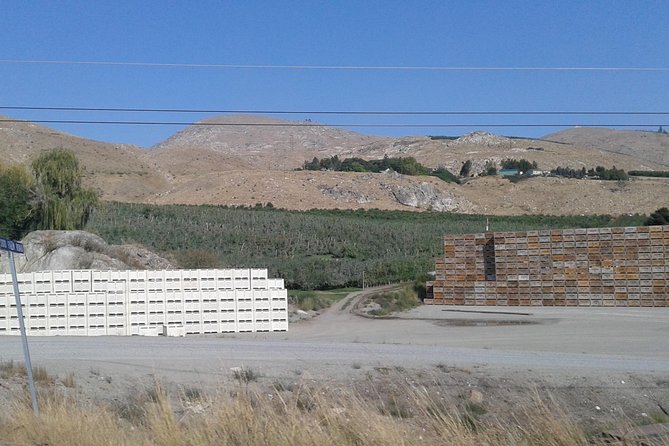
Washington state’s agricultural landscape is a tapestry of verdant orchards and lush farmlands that have shaped the region’s identity for generations.
From the rolling hills of the Yakima Valley to the fertile plains of the Columbia Basin, the state’s diverse terrain provides the perfect conditions for a thriving agricultural industry.
Farmers harness the power of the region’s abundant water resources, utilizing advanced irrigation systems to cultivate a wide variety of crops, including the iconic Washington apple.
This symbiotic relationship between the land, water, and the people who work it has been the backbone of the state’s economy for centuries, and continues to be a source of pride and prosperity.
You can also read our reviews of more tours and experiences in Seattle.
Apple Production and Cultivation
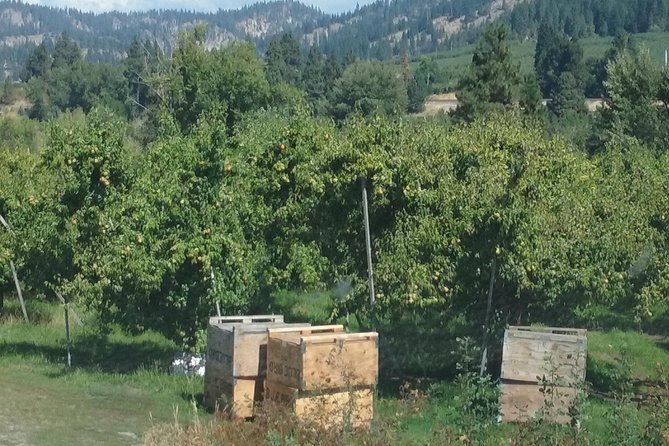
At the heart of Washington state’s agricultural prowess lies the cultivation of its world-renowned apples. With ideal growing conditions, including a temperate climate and rich, fertile soil, the state produces over 60% of the nation’s apples.
Apple growers employ advanced irrigation techniques to ensure optimal moisture levels, while innovative pruning and thinning methods maximize fruit quality and yield.
From the iconic Red Delicious to the crisp Honeycrisp, Washington’s diverse apple varieties are prized for their exceptional flavor and texture.
This thriving industry not only contributes significantly to the state’s economy but also showcases its expertise in sustainable, high-yield agricultural practices.
Irrigation Practices in the Region
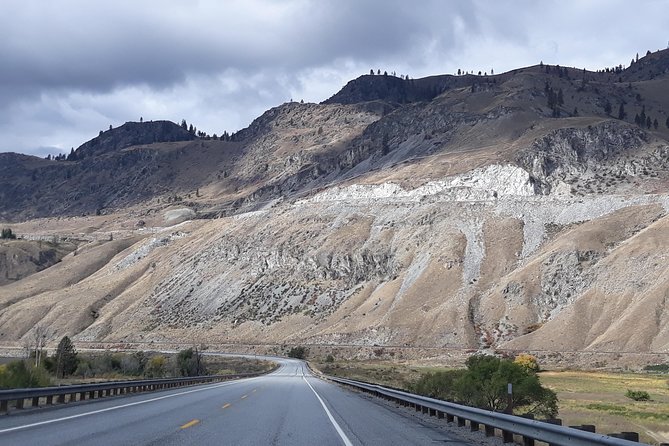
Integral to the state’s apple production, growers employ sophisticated irrigation techniques to ensure their orchards receive optimal moisture levels.
Washington’s arid climate necessitates strategic irrigation practices to maximize yields. Key approaches include:
-
Drip irrigation systems that precisely deliver water directly to the root zone, minimizing evaporation.
-
Soil moisture sensors that monitor conditions and automatically adjust irrigation schedules for maximum efficiency.
-
Precision scheduling using evapotranspiration data to match water application with the orchards’ exact needs.
These advanced irrigation methods enable Washington’s apple growers to cultivate high-quality, productive orchards despite the region’s dry conditions, sustaining the state’s position as a leading apple producer.
Sustainable Farming Techniques
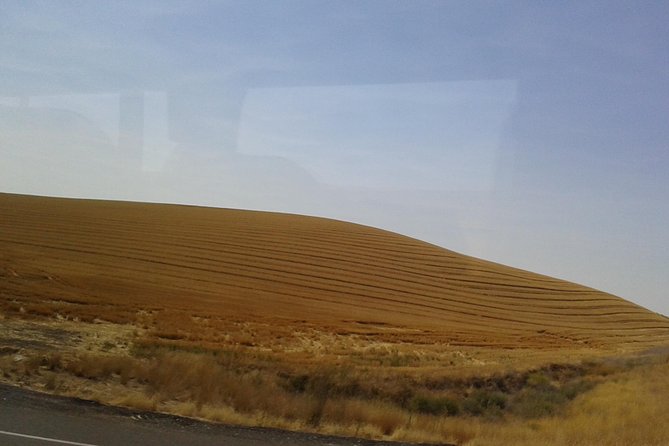
Along With their sophisticated irrigation practices, Washington’s apple growers employ a range of sustainable farming techniques to ensure the long-term viability of their orchards. These include integrated pest management, cover cropping, and precision agriculture. By utilizing natural pest control methods and minimizing chemical inputs, growers promote biodiversity and soil health. Cover crops enhance nutrient cycling and prevent soil erosion, while GPS-guided machinery optimizes the application of fertilizers and pesticides. This holistic approach allows apple production to thrive in harmony with the local environment.
| Sustainable Farming Techniques | Benefits | Adoption Rate |
|---|---|---|
| Integrated Pest Management | Reduced chemical use, enhanced biodiversity | High |
| Cover Cropping | Improved soil health, reduced erosion | Moderate |
| Precision Agriculture | Efficient resource use, minimized environmental impact | Increasing |
Impact of Climate on Agriculture
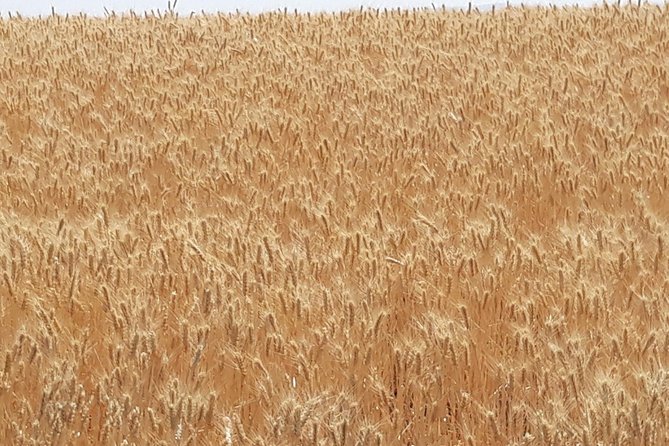
The climate in Washington State has a profound impact on the region’s agricultural productivity. The state’s varied topography and distinct seasons create both opportunities and challenges for farmers.
Some key ways climate affects agriculture include:
-
Temperature fluctuations – Extreme heat waves and cold snaps can damage or destroy crops.
-
Precipitation patterns – Irregular rainfall and drought threaten water supplies needed for irrigation.
-
Pest and disease prevalence – Warmer temperatures can increase the range and activity of agricultural pests and pathogens.
Adapting to these climate-related factors is crucial for the long-term viability of Washington’s thriving agricultural sector, which includes its renowned apple production.
Challenges Facing Washington Farmers
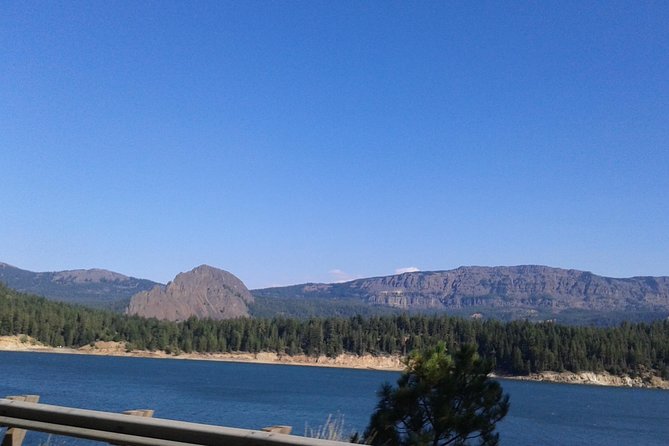
Washington farmers face various challenges in their agricultural pursuits. Fluctuating weather patterns, including unpredictable rainfall and temperature extremes, have made crop planning and irrigation management increasingly difficult.
Plus, the rising cost of land and labor has put financial strain on many farms. Pests and diseases pose constant threats, requiring vigilant monitoring and management strategies.
Water scarcity, particularly in the drier regions of the state, has become a pressing issue, necessitating efficient irrigation systems and conservation efforts. Regulatory compliance, such as meeting environmental standards, adds administrative burdens for farmers.
Despite these obstacles, Washington’s agricultural community continues to adapt and innovate, leveraging technological advancements and collaborative efforts to ensure the sustainability of the state’s thriving agricultural sector.
Future Trends in Washington Agriculture
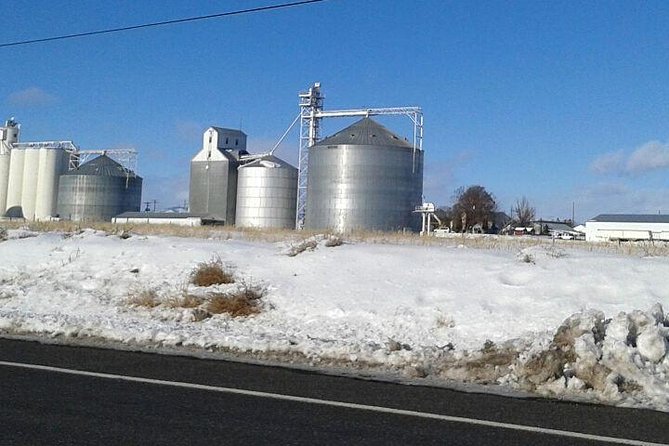
What lies ahead for Washington’s agricultural landscape? As the state continues to grapple with water scarcity and climate change, innovative approaches are emerging. Growers are investing in drought-resistant crops, precision irrigation systems, and renewable energy sources.
This shift towards sustainability is driven by the need to ensure long-term viability and resilience in the face of environmental challenges. Key future trends include:
- Adoption of precision agriculture technologies to optimize water and resource usage.
- Diversification of crop selection to include more resilient, climate-adaptive varieties.
- Increased collaboration between farmers, policymakers, and researchers to develop comprehensive solutions.
These forward-thinking strategies aim to secure Washington’s agricultural future and maintain its status as a leading producer.
Frequently Asked Questions
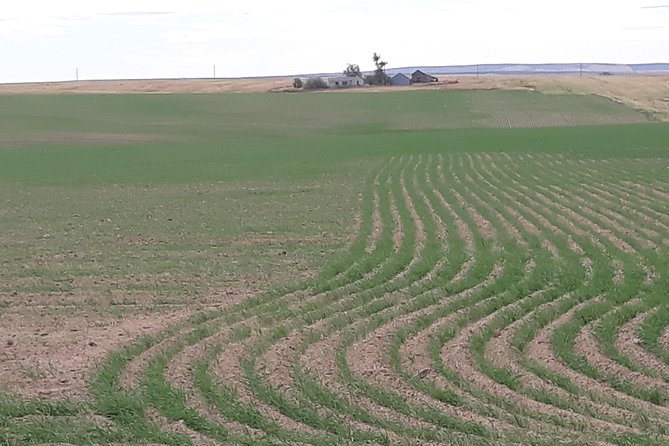
Can I Bring My Own Water Bottle on the Tour?
According to the tour overview, the tour provides a souvenir water bottle filled with filtered water. Guests can bring their own water bottles, but the tour includes a complimentary bottle for your convenience.
Is There a Vegetarian or Gluten-Free Lunch Option Available?
Yes, the tour offers vegetarian and gluten-free lunch options upon request. Guests can specify their dietary needs when booking the tour, and the tour operator will accommodate them accordingly.
How Long Is the Transfer Time From the Pickup Locations?
The transfer time from the pickup locations varies but is generally around 30-45 minutes. Exact transfer times depend on the specific pickup location and traffic conditions on the day of the tour.
Is There an Option to Extend the Tour Duration?
Unfortunately, the tour overview doesn’t mention an option to extend the tour duration. The tour has a set start time and length, so there doesn’t seem to be a way to customize the experience beyond the standard offering.
Can I Reschedule or Cancel the Tour if Needed?
Yes, the tour can be rescheduled or canceled. The tour provider offers free cancellation up to 24 hours before the start time, and travelers can also choose the Reserve Now and Pay Later option if needed.
Recap
Washington’s apple industry remains a testament to the state’s agricultural prowess. Innovative irrigation and sustainable farming practices have enabled orchards to thrive, even in the region’s arid climate. As the industry continues to evolve, Washington’s commitment to preserving its agricultural heritage while adapting to future challenges will be crucial in maintaining its position as a dominant player in the national apple market.
More Tour Reviews in Seattle
- Experience Mining For Genuine Montana Sapphires in Seattle
- Explore Tacoma With a Unique Scavenger Hunt by Wacky Walks
- Nature Tour/Hike
- Hourly City and or Wine Tours of Seattle Wa
- Day Private Snoqualmie Falls & Woodinville Wine Tour From Seattle
- Seattle Tacoma Airport (SEA) to Seattle – Round-Trip Private Transfer
Not for you? Here's more things to do in Seattle we have recnetly reviewed
- 3 Best Dining Experiences In Seattle
- 25 Best Cruises And Boat Tours In Seattle
- 18 Best Food Tours In Seattle
- 8 Best Full-Day Tours In Seattle
- 3 Best 2 Day Tours In Seattle
- 8 Best Coffee Tours And Tastings In Seattle
- 8 Best Lunch Experiences In Seattle
- Seattle: WAMU Theater Transportation
- Skagit Valley Birding + Deception Pass Day Tour From Seattle
- Snoqualmie Fall & Railway Museum 3-Hours (Private Tour)
- Seattle-Tacoma International Airport (SEA)
- The Best of Seattle and Majestic Snoqualmie Waterfalls
